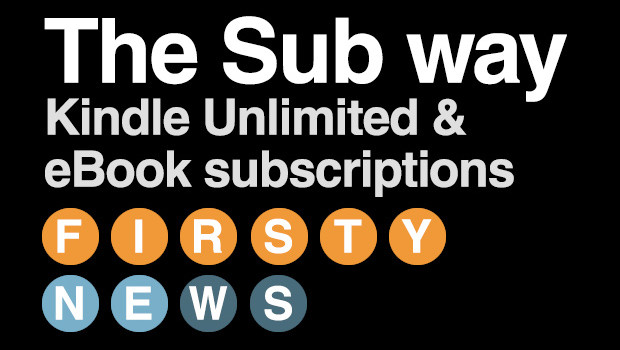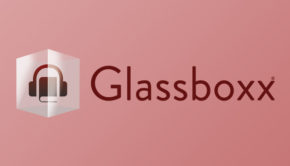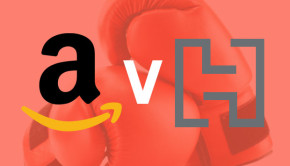The sub way
Amazon’s Kindle Unlimited service is a reminder that ebook subscriptions are a serious channel now. But should publishers be excited or alarmed?
The eBook subscription model has been a big issue in publishing for a while now, but it has leapt centre stage since Amazon’s launch of Kindle Unlimited in July.
The service offers access to some 600,000 ebooks and 200,000 audiobooks for $9.99 (about £5.95) a month, and has been trumpeted as a Netflix or Spotify style concept for books. Those two services marked step changes for the TV and music industries respectively—so will this bring similar upheaval in publishing?
From a customer’s point of view at least, Kindle Unlimited is good news. The deal appears to be strong value, since for the cost of a single cheap paperback a month, readers will be able to access as many books as they like. Amazon’s promotion of the service has revolved around the ‘Freedom to explore’ message, and the idea of an entire library at the fingertips for free after an upfront cost will appeal to many.
But publishers seem to be viewing it rather differently. The so-called big five—Hachette, Penguin Random House, HarperCollins, Macmillan and Simon & Schuster—have been conspicuous by their scepticism so far, and it will be interesting to see whether or not Amazon can tempt them on board. Perhaps the public appeal of Kindle Unlimited will prove so great that they cannot hold out. But Amazon’s very public row with Hachette—covered in this newsletter a couple of months ago—continues to rumble on, and that will make all publishers very wary of signing up to something so big.
Smaller publishers and self-published authors have concerns too. As the Bookseller reported recently, some of them fear that Kindle Unlimited will reduce authors’ income while restricting them from selling their content elsewhere. Publishers can expect to get a wholesale fee for each ‘read’ of their books, but self-published authors must share a pool of money set aside by Amazon, which means their fees may fluctuate considerably over time. One small publisher, Alma Books, told the Bookseller: “We’re not among the publishers who intend to commit collective suicide.”
While all these publishers remain absent, Kindle Unlimited is missing a lot of blockbuster authors. So will readers pay $9.99 a month when the free trial that is now on offer ends? Some major series including Harry Potter, the Hunger Games and the Lord of the Rings are already part of the deal, but a service without so many household names might not be quite so attractive. By way of comparison, it is hard to imagine Netflix or Spotify being quite so popular without the support of major TV studios and record labels.
For now, Kindle Unlimited is only available in the US, but most of its initiatives over there sooner or later end up on this side of the Atlantic too. So its launch is a timely reminder that ebook subscription services are impossible to ignore.
Some UK publishers don’t need the reminder, of course. For many in the scholarly sectors, they have been a fact of life for years—and indeed, Firsty Group will soon be launching a new subscription-based website for a large educational publisher. And Amazon is far from the first to offer this sort of thing in trade publishing. Scribd, Oyster and Entitle are the three biggest alternatives in the US right now, while in Europe, Spain has produced 24 Symbols and Germany Skoobe.
There are subtle differences between services. Scribd and Oyster also promise unlimited access, but Entitle offers two ebooks a month for $9.99—a more expensive service, but one that does allow access to some bigger books. As an interesting new report from the US Book Industry Study Group shows, a myriad more variations are possible, from a single-author or single-subject subscription up to a vast academic library. One size clearly doesn’t fit all when it comes to ebook subscriptions.
Predicting the future of this model is hard when it is changing so fast. One thing for sure is that not all of the platforms currently out there will stay the course. Some will struggle to attract enough subscriptions to make them work, probably because they have not been able to gather enough big-name ebooks to offer to their customers.
Another certainty is that the financial model behind subscriptions will have to change. As it stands, most big publishers feel there is not enough in it for either them or their authors, and are quite happy to sell ebooks conventionally, or loan them on a per-title basis. It means that for now, publishers hold all the cards and can hold out for terms that suit them.
But with new platforms like Kindle Unlimited joining the fray, what is most obvious of all is that the ebook subscription model is here to stay. Publishers are free to make up their own minds about whether or not it is going to work for them financially, but it would be dangerous for any of them to simply hope it will disappear. Now might be the time to dip a toe in the water and discover the pros and cons of subscriptions. As HarperCollins’ chief digital officer Chantal Restivo-Alessie put it in a Mashable piece about digital change: “You put out something, you learn fast and you ditch stuff that doesn’t work, and then you carry on experimenting. Some things will stick and some things will hit big—but you don’t know ahead of time.”
Firsty Group is very familiar with delivery and payment of content on a subscription basis, with a couple of example websites launching in the coming weeks. If subscription-based content is an applicable means of delivery for your content—or even something you are simply contemplating—please feel free to get in touch: we will be happy to talk through the detail with you.





